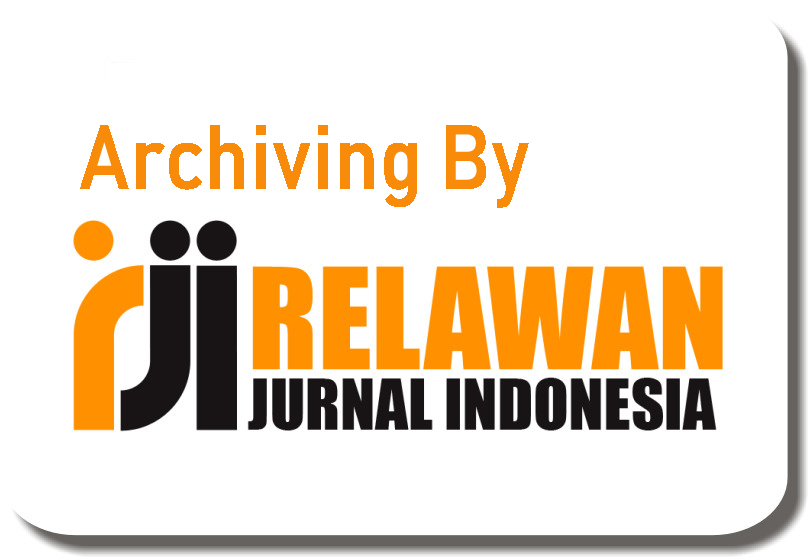The effect of Felder's reflective active-based vak learning style on early childhood science learning outcomes
Abstract
Keywords
Full Text:
PDFReferences
Thompson, R. A., & Nelson, C. A. (2021). Developmental science and the media: Early brain development. Annual Review of Developmental Psychology, 3, 19-42. https://doi.org/10.1146/annurev-devpsych-051320-103207
Ershadi, A., Wang, X., & Clark, C. (2021). The role of early childhood education in supporting emotional and social development: A systematic review. Early Childhood Research Quarterly, 55, 75-87. https://doi.org/10.1016/j.ecresq.2020.11.001
Peterson, S. M., & French, L. (2021). Developing inquiry skills in early childhood through science education: A pathway to cognitive growth. Early Childhood Research Quarterly, 56, 215-229. https://doi.org/10.1016/j.ecresq.2021.04.001
Cross, F., & Wells, A. (2022). Fostering curiosity and scientific thinking in early childhood through hands-on exploration. Science Education, 106(2), 350-367. https://doi.org/10.1002/sce.21672
Tzou, C., & Bell, P. (2020). Storywork in STEM-Art: Making, Materiality, and Robotics within Everyday Acts of Indigenous Presence and Resurgence. In S. L. Pinkard, N. S. Nasir, & D. O. Espinoza (Eds.), STEM and the Social Good: Forwarding Political and Ethical Perspectives in the Learning Sciences. Routledge.
Krisnanto, Hery, Taufiqulloh Taufiqulloh, and Yoga Prihatin. 2023. “Pengaruh Model Pembelajaran Flipped Classroom Terhadap Pelajaran Bahasa Inggris
National Research Council. (2007). Taking Science to School: Learning and Teaching Science in Grades K-8. Washington, DC: National Academies Press
Ginsburg, H. P. (2006). The Importance of Early Cognitive Development for Later Learning. Child Development Perspectives, 1(1), 5-11.
Miller, E., & Tarrant, K. (2022). Early childhood education and its role in shaping cognitive and social skills: Recent findings and implications. Journal of Educational Psychology, 114(2), 252-265. https://doi.org/10.1037/edu0000574
Hartinah, Sitti et al. 2020. “Teacher’s Performance Management: The Role of Principal’s Leadership, Work Environment and Motivation in Tegal City, Indonesia.” Management Science Letters 10(1): 235–46.
LPMP. (2023). Laporan Evaluasi Implementasi Kurikulum 2013 dan Pelatihan Guru. Jakarta: Lembaga Penjaminan Mutu Pendidikan
Zepeda, S. J., & Mayers, D. P. (2022) Understanding and implementing learning styles in early childhood education: Practical approaches for diverse classrooms. Journal of Early Childhood Teacher Education, 43(1), 12-28. https://doi.org/10.1080/10901027.2021.1905969
Gardner, H. (1983). Frames of Mind: The Theory of Multiple Intelligences. New York: Basic Books.
Gardner, H. (2021). Multiple Intelligences: New Horizons in Theory and Practice. Basic Books
Kumar, R., & Nair, S. (2021). Instructional Differentiation in Early Childhood Education: Effects on Student Engagement. Early Childhood Research Quarterly, 55, 20-31.
Liu, Y., & Zhang, Y. (2022). Longitudinal Study of Learning Styles and Academic Achievement in Early Childhood Education. Developmental Psychology, 58(4), 1123-1135.
Felder, R. M., & Brent, R. (2021). Teaching and learning STEM: A practical guide. Jossey-Bass
Fleming, N. D., & Mills, C. (2021). Not another inventory, rather a catalyst for reflection. In N. Fleming & C. Mills (Eds.), VARK: A Guide to Learning Styles. VARK Learn Limited. [Karya terbaru dari Neil Fleming mengenai model VAK.]
DOI: https://doi.org/10.31004/jele.v10i1.643
Refbacks
- There are currently no refbacks.
Copyright (c) 2025 Arfani Rahma Safarina, Taufiqulloh Taufiqulloh, Rahmad Agung N

This work is licensed under a Creative Commons Attribution-ShareAlike 4.0 International License.



